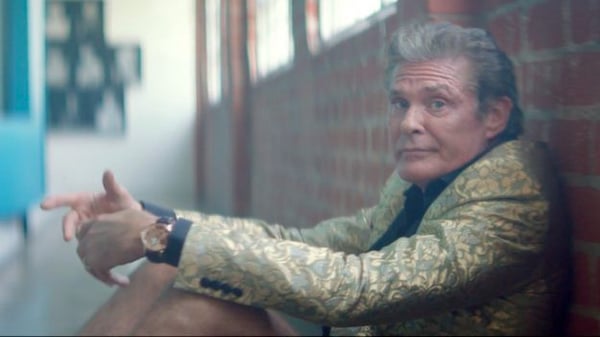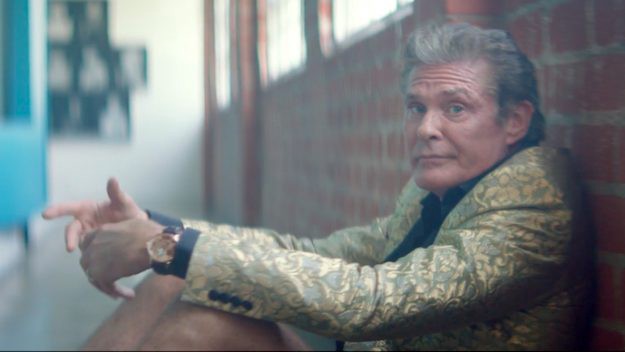Look Out, Hollywood — Here Comes the Hoffbot!
Time for another exciting update on adventures in impact investing during my not-a-sabbatical! (If that sentence doesn’t ring any bells, you might want to read the two linked posts to get caught up. Not a requirement, though!)
The six weeks since my last update have been fun-filled and action-packed. But rather than just tell you what I’ve been doing, I’d like to share some of what I’ve been thinking about. Bear with me for a moment while I set the scene.
Advances in artificial intelligence and robotics are expected to make 47% of current US jobs obsolete within a couple of decades. The jobs that are at risk aren’t just the obvious ones, like drivers and assembly line workers. For example, many believe it is easier to create an autonomous robot surgeon (wedding detailed knowledge of anatomy to extreme physical precision) than a robot nurse (which relies at least partly on empathy).
The good news is that those of us who work in the arts are safe. I mean, authentic creativity is a uniquely human trait, difficult or impossible to engineer in a machine. Right? Right??
Not so fast. An artificial intelligence named Benjamin (it named itself!) has now written two screenplays, both of which were produced as short films. The latest, titled It’s No Game, was released in late April and stars none other than David Hasselhoff.

The work is surreal, but coherent by the standards of experimental film and totally watchable (for seven minutes, anyway). It is self-aware in a mobius strip / hall of mirrors / David-Lynch-or-Robert-Altman-but-not-as-good kind of way. Watch and judge for yourself:
This isn’t the first time an artificial intelligence has dabbled in artistic creation. We’ve got robots who play the marimba and can jam alongside human musicians. And unsurprisingly, Google is all over this stuff.
These efforts raise all sorts of provocative and challenging questions for my work on the Exponential Creativity Fund. The fund’s stated goal is to invest in entrepreneurs who are using exponential technologies to empower or enhance human creativity. For many years now, humanity has been shifting from a consumption paradigm to a creation paradigm, and we want to help that along.
But what about AI creativity? As robot artistry matures, will it “out-compete” human artists, subjecting them to the same sad fate as elevator operators? Or, alternatively, will creative AIs help unlock even more of our human potential for creativity and expression (i.e. as collaborators, instructors, assistants, etc.)?
These questions aren’t yet answerable. Ultimately, they may not even be the right questions to ask. I share Kevin Kelly’s view that technology is a force of nature. We can’t stop the development and propagation of AI any more than the Luddites could stop the industrial revolution. That genie left the bottle when our prehuman ancestors built the first stone tools and figured out how to control fire.
The inevitability of technological progress, however, doesn’t by itself relegate us to the role of passive observer-victims. We have myriad opportunities to influence the manner in which that progress unfolds. That includes both the nature of our relationship to the tech (e.g., master, servant, or partner) and who has access to it (e.g., a privileged few or everyone).
That’s exactly what we’re trying to do, in our own small way, with the Exponential Creativity Fund. Our mission goals are about supporting technology that is human-centered and democratic, that treats creativity and free expression as human rights rather than fungible, commodity inputs. (We have equally important financial goals as well, but I don’t believe those are relevant to this particular inquiry.)
Which brings me back to Benjamin, the AI screenwriter. Here’s what I’m trying to figure out: if given the opportunity to make an otherwise attractive investment in some future iteration of this concept, should we? For now, this remains a rhetorical question. I doubt it will much longer.
About Adam Huttler
Adam Huttler is the founder and Managing General Partner of Exponential Creativity Ventures. As a six-time founder, his career’s through-line has been about helping mission-driven companies use technology to drive innovative revenue strategies. Adam is best known as the founder of Fractured Atlas, a social enterprise SaaS platform that helps artists and creative businesses thrive.


